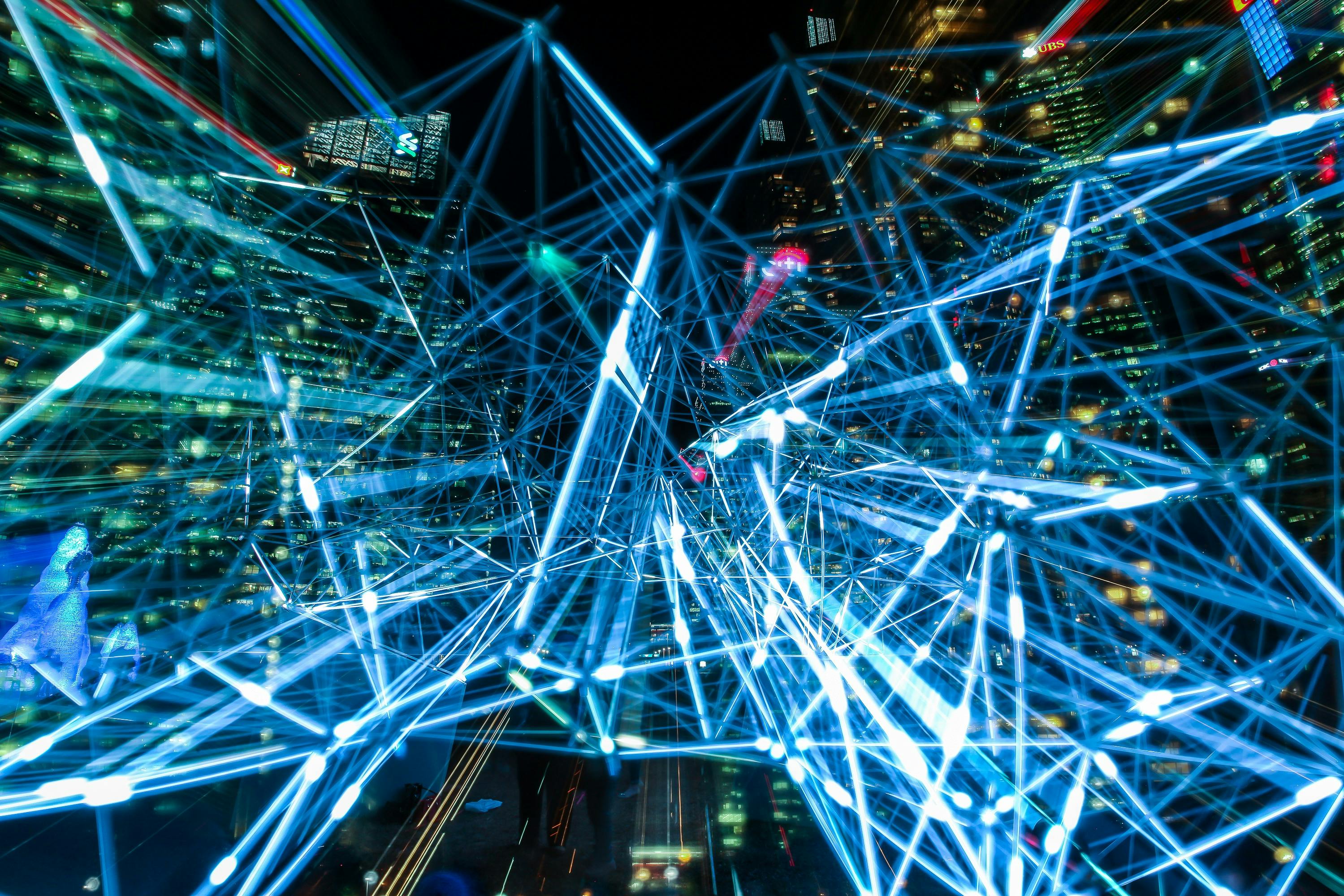The Profound Impact of Artificial Intelligence on Society
Introduction
Artificial Intelligence (AI) is no longer a concept of science fiction but a rapidly advancing technology that is transforming the world. From healthcare and finance to entertainment and daily life, AI has become an integral part of modern society. This article delves into the evolution of AI, its applications across various sectors, the ethical implications, and the future possibilities it holds for humanity. The development of AI is reshaping industries, influencing economies, and altering the fabric of social interaction, making it one of the most significant technological advancements of the 21st century.

The Evolution of AI: From Theory to Reality
The journey of AI began in the mid-20th century, with pioneers like Alan Turing and John McCarthy laying the foundation. Turing's concept of a machine that could simulate any human task was revolutionary, leading to the development of early computers that could perform basic problem-solving tasks. However, it was not until the advent of more sophisticated algorithms and the availability of large data sets that AI truly began to take shape.
In the 1980s and 1990s, AI research experienced significant growth, driven by advances in machine learning, neural networks, and data processing capabilities. The introduction of deep learning in the 2000s marked a turning point, enabling AI systems to learn and make decisions in ways that mimic human cognition. Today, AI is utilized in a myriad of applications, from natural language processing and autonomous vehicles to predictive analytics and personalized recommendations.

AI in Healthcare: Revolutionizing Medical Science
Healthcare is one of the most promising fields for AI application, where it has the potential to revolutionize diagnostics, treatment, and patient care. AI-driven tools are now capable of analyzing medical images with unprecedented accuracy, aiding in the early detection of diseases such as cancer. For example, AI systems can scrutinize thousands of mammograms and identify potential issues that might be overlooked by human radiologists.
Moreover, AI is transforming personalized medicine. By analyzing genetic information, lifestyle data, and environmental factors, AI can help develop personalized treatment plans that are more effective and have fewer side effects. This approach is particularly beneficial in treating complex conditions such as cancer, where traditional one-size-fits-all methods may not be as effective. AI also plays a crucial role in drug discovery, accelerating the development of new treatments by predicting how different compounds will interact with biological systems.
Beyond diagnosis and treatment, AI is being used to manage healthcare logistics, optimize hospital operations, and even predict patient outcomes. These advancements are not only improving the quality of care but also making healthcare more accessible and affordable.

AI in Finance: Redefining the Financial Landscape
The financial industry has embraced AI with open arms, leveraging its capabilities to improve decision-making, enhance customer experience, and mitigate risks. AI-powered algorithms are now a staple in trading, where they analyze market data in real-time, identify patterns, and execute trades at lightning speed. These algorithms are designed to respond to market fluctuations faster than any human could, maximizing profits and minimizing losses.
In risk management, AI is used to assess creditworthiness, detect fraudulent activities, and predict market trends. By analyzing vast amounts of data, AI systems can identify potential risks and recommend strategies to mitigate them. This has become particularly important in the era of big data, where the volume of information generated by financial transactions is overwhelming for traditional analysis methods.
AI is also transforming customer service in the financial sector. Chatbots and virtual assistants, powered by AI, are now handling routine inquiries, helping customers manage their accounts, and providing personalized financial advice. This not only improves efficiency but also enhances customer satisfaction by offering 24/7 support.
AI in Creative Industries: A New Frontier
AI is also making significant inroads into the creative industries, challenging the traditional boundaries of art, music, and literature. AI-powered tools are being used to compose music, generate artwork, and even write stories. These systems analyze existing works, learn patterns, and create new content that, in some cases, is indistinguishable from human-created art.
In the film industry, AI is used to enhance special effects, generate realistic animations, and even predict the success of movies by analyzing scripts and audience data. AI is also being used in journalism to automate the writing of news articles, especially for covering routine topics like sports and financial reports. While these advancements are exciting, they also raise questions about the role of human creativity in an era where machines can generate content autonomously.
Despite the growing capabilities of AI in the creative industries, it is unlikely to replace human creativity. Instead, AI is seen as a tool that can augment human creativity, providing new ways to explore ideas and push the boundaries of what is possible in art and media.

Ethical Considerations: Navigating the Challenges of AI
As AI continues to evolve, it brings with it a host of ethical challenges that society must address. One of the most pressing issues is the potential for AI to reinforce existing biases. AI systems learn from data, and if that data reflects societal biases, the AI may perpetuate or even amplify those biases in its decision-making. This has been a concern in areas such as hiring, where AI systems may inadvertently discriminate against certain groups based on biased training data.
Another ethical concern is the issue of accountability. As AI systems become more autonomous, it becomes increasingly difficult to determine who is responsible when something goes wrong. For example, if an autonomous vehicle causes an accident, is the manufacturer, the software developer, or the AI itself to blame? Establishing clear lines of accountability is essential as AI takes on more roles in decision-making processes that affect people's lives.
Privacy is another critical issue. AI systems often rely on large amounts of data to function effectively, often including personal data. This raises concerns about how this data is collected, stored, and used, particularly in terms of consent and the potential for misuse. The implementation of AI systems must prioritize the protection of personal data and ensure compliance with regulations like the GDPR.
The Future of AI: Boundless Possibilities and Challenges
The future of AI is both exciting and uncertain. As AI systems continue to evolve, they will become even more integrated into our daily lives, taking on more complex tasks and making decisions that were once the domain of humans. In the realm of transportation, AI-powered autonomous vehicles are set to revolutionize the way we travel, potentially reducing accidents and increasing efficiency. Smart cities, powered by AI, will optimize everything from energy usage to traffic flow, creating more sustainable and livable urban environments.
In education, AI will personalize learning experiences, adapting to the needs and preferences of individual students. This could make education more effective and accessible, particularly in underserved regions. In agriculture, AI-driven technologies will improve crop yields, monitor environmental conditions, and manage resources more efficiently, helping to address global food security challenges.
However, the integration of AI into society also presents significant challenges. Ensuring that AI systems are transparent, accountable, and free from bias will be critical to maintaining public trust. As AI becomes more capable, there is also the risk that it could be used for malicious purposes, such as creating deepfakes, conducting cyber-attacks, or enabling mass surveillance. Addressing these risks will require global cooperation and the development of robust regulatory frameworks.
Looking further ahead, the concept of artificial general intelligence (AGI) — AI systems that possess the ability to understand, learn, and apply knowledge across a wide range of tasks, similar to human intelligence — presents both immense opportunities and existential risks. While AGI could lead to unprecedented advancements in science, medicine, and technology, it also raises fundamental questions about control, safety, and the future of humanity.
As we continue to explore the potential of AI, it is essentialIt seems the response was interrupted before completion. Here is the continuation and conclusion of the HTML content for the article on the profound impact of artificial intelligence on society, without the CSS: ```html
Looking further ahead, the concept of artificial general intelligence (AGI) — AI systems that possess the ability to understand, learn, and apply knowledge across a wide range of tasks, similar to human intelligence — presents both immense opportunities and existential risks. While AGI could lead to unprecedented advancements in science, medicine, and technology, it also raises fundamental questions about control, safety, and the future of humanity.
As we continue to explore the potential of AI, it is essential that we do so with caution, foresight, and a commitment to ensuring that these technologies are developed and used in ways that benefit all of humanity.

Conclusion
Artificial Intelligence is a transformative force with the potential to revolutionize every aspect of society. From enhancing healthcare and finance to pushing the boundaries of creativity and reshaping industries, AI offers unparalleled opportunities. However, these advancements come with significant ethical, social, and economic challenges that must be addressed. As we move forward, it is imperative to ensure that AI is developed and deployed responsibly, with a focus on transparency, fairness, and the greater good.
By embracing the possibilities of AI while navigating its challenges, we can create a future where technology enhances the human experience, fosters innovation, and contributes to a more equitable and sustainable world.

0 Comments